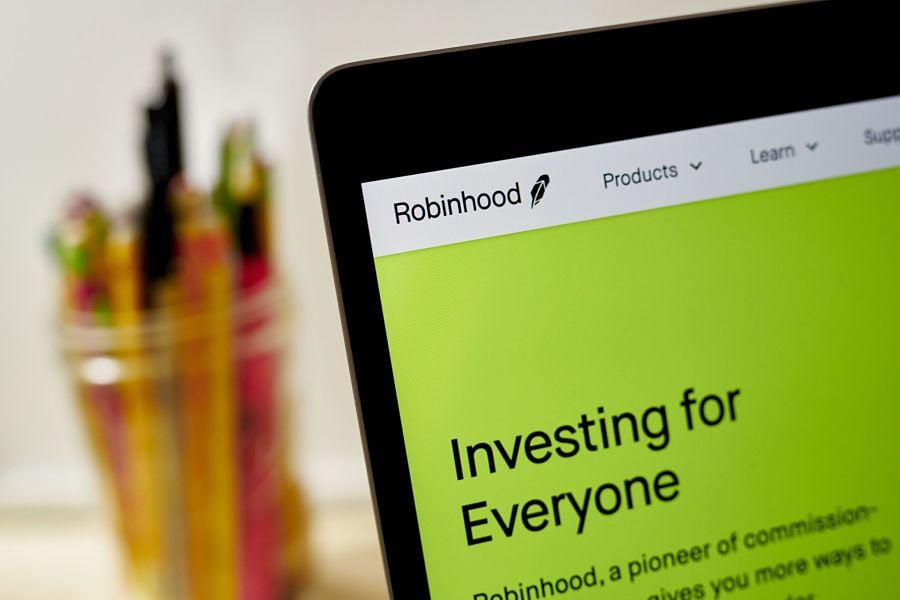

Robinhood Markets Inc. warned investors Wednesday that a second-quarter revenue surge that was fueled by a boom in cryptocurrency trading might not last.
In its first earnings report as a publicly traded company, the brokerage said revenue more than doubled to $565 million, but that a significant portion of that was fueled by virtual currencies, primarily Dogecoin, a token that originated as a joke.
Shares of Robinhood tumbled 8.2% to $45.70 in extended trading at 6:35 p.m. Wednesday in New York, after climbing 31% since the company's July 29 initial public offering.
“We expect seasonal headwinds and lower trading activity across the industry to result in lower revenues and considerably fewer new funded accounts” in the third quarter, Robinhood said in a statement.
Crypto revenue totaled $233 million in the second quarter, up 4,560% from a year earlier, underscoring how the ever-shifting preferences of retail traders play a crucial role in how much revenue the company generates. That figure exceeded revenue from stock and options trading combined. Dogecoin accounted for 62% of crypto revenue in the period.
After reporting the results, Robinhood executives fielded questions from retail investors during a conference call — a role typically reserved for Wall Street analysts. Earlier this month, Robinhood purchased Say Technologies, a software provider that allows individual investors to submit questions to management.
One person asked whether they could have Robinhood-branded hats and hoodies. Another wanted to know whether Robinhood will provide crypto wallets, which allow users to send and receive virtual currencies without first converting them into dollars.
“It’s something that our teams are working on,” Chief Executive Vlad Tenev said, adding that they’re in particular demand among Dogecoin enthusiasts. “The ability to deposit and withdraw cryptocurrencies is tricky to do with scale, and we want to make sure it’s done correctly and properly.”
Robinhood is also weighing whether it would make sense to add social media features on its app, Tenev said in response to another inquiry.
Executives also said Robinhood will explore whether to allow users to give stocks as gifts, make more cryptocurrencies available for trading and offer retirement accounts.
Robinhood’s second-quarter loss of $502 million, which was toward the low end of an earlier forecast, compares with a $58 million profit in last year’s second quarter, when retail investors plunged back into stocks after a pandemic-fueled rout.
The surge in crypto revenue also reflects increased investor appetite for virtual currencies this year. More than 60% of Robinhood accounts traded cryptocurrencies in the second quarter. Bitcoin touched record highs in April, and hovered above $34,500 at the end of June. The price was closer to $9,000 around the same time last year.
Robinhood’s funded accounts reached 22.5 million customers as of June 30, compared with about 9.8 million a year earlier, according to the statement.

The alts giant's latest executive hire builds on its continuing strategy to expand into the private wealth space.

While it's a useful rule of thumb, wealth industry experts agree Social Security benefits, retirement income planning, and individual expenses should also be factored in.

The holdout optimist from Wells Fargo sees market "past peak uncertainty" as trade war fears push many cheerleaders to pare back their predictions.

Last year's standout winners reflect on their triumph as the wealth industry gears up for another unforgettable night in New York City.

Financial advisors are becoming a bit more leery that fees, particularly for their wealthiest clients, are on the verge of taking a hit.
From direct lending to asset-based finance to commercial real estate debt.
RIAs face rising regulatory pressure in 2025. Forward-looking firms are responding with embedded technology, not more paperwork.
